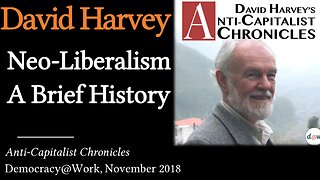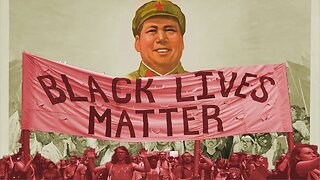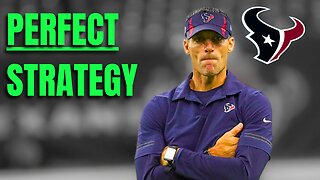Socrates | Greek Philosophy 04a
1. INTRO
0:00:00.5: Okay, colleagues, welcome back. Today, we have a very special class. Indeed, every class is special in a course like this, but today, more so than usual. Today we are discussing the singular, the enigmatic, the protean, the one and only Socrates. Throughout the ages, philosophers have tried to construct radically divergent pictures of who Socrates was and what he stood for. Therefore, I want to stress that in this lecture as well as in every other, I am first and foremost giving you my own perspective. I am trying to bring out to focus the issues that animate and inspire my own thinking, so I am deliberately choosing to be selective, oftentimes advancing a controversial or even a minority position. I do so because I believe that it is the task of philosophy to first and foremost move us to think. Therefore as a matter of conscious choice, I would rather be provocative than boring.
2. MAIN IDEA OF Ph & Socr
0:01:06.2: So I would encourage my students to keep this in mind at all times, and I think it's doubly appropriate for me to talk about this issue of perspectivism, for the lack of a better word, but also this perpetually open-ended and essentially dialogical nature of philosophy, and to do so in a class on Socrates because basically, this is exactly how I am going to interpret Socrates's main message that to do philosophy is to first and foremost, dare to think for oneself, which brings out this essentially subversive element of Socrates's philosophy, which he seems to share with the sophists, the idea that we cannot take for granted the values, the norms and the customs of our society in an uncritical fashion, a potentially religiously blasphemous and politically treacherous doctrine, precisely for which quite possibly Socrates was executed by the City of Athens, his native polis, which should serve, I think, is an important reminder of the inherent danger of philosophy.
0:02:16.9: Many people embarking on the philosophical enterprise hope in a fairly naive way, I think, to merely find a substantiation of the ideas, ideals and values that they already hold. Such overly optimistic attitude, I'm afraid, is deeply antithetical to the spirit of philosophy, properly understood. If we are willing to be guided by the peculiarly unforced force of the better argument, as Rick Roderick puts it, then we have to be open to the possibility, indeed to the danger, that the better argument might lead us into the dark and the dangerous places. Nietzsche ominously warns us that there may indeed be truths too terrible for us to bear, but such danger is inevitably the price for thinking for oneself, though let me note that there are dangers of not thinking for oneself as well. Danger is on both sides, right? Such is the nature of human predicament.
3. TWO REASONS NOT TO WRITE
0:03:22.6: But back to Socrates. We know about Socrates from the accounts of others, first and foremost, Plato. Socrates himself chose to write nothing, instead preferring to engage in a live, face-to-face discussion, and I think we can discern two separate reasons in this preference for the dialogue form, which will to an extent carry over into Plato's philosophy. This commitment to the dialogue form could and probably should be taken as an expression of a fundamental, methodological principle, a principled – commitment to the free and open discussion, discussion of the issues of overriding importance, ultimately dealing with the proverbial philosophical question, "What is the meaning of human life? What constitutes proper human excellence, arete?" Or, to put it simply, "What should one do? How should one live? What values and principles should guide one's behavior?"
4.1. DIALOG: KNOWS NOTHING
0:04:31.4: Now, this picture of Socrates as a man who paradigmatically thought for himself and who was prepared to overthrow long-cherished conclusions if he found out that they could not be sustained by rational scrutiny and taught others to do the same. As Miles Bernie puts it, "This picture has become, I think rightfully so, synonymous with philosophy itself, synonymous with philosophy as a way of life." So let me elaborate a bit further on both the presuppositions and the ramifications of such a view. In Plato's Apology, Socrates famously proclaims that he knows that he knows nothing. Far from a mere profession of ignorance, this statement reflects an important piece of genuine knowledge, the realization of the limits of human intellect. It may be perhaps that gods, if they exist, have genuine knowledge of the world, but among men, he is wise who like Socrates understands that ultimately he knows nothing. Clearly, Socrates also believes that it is worthwhile for us to seek after knowledge.
[continue in the comments]
#socrates #apology #plato
-
 57:58
57:58
Philosophy with Alexander Koryagin
4 months agoDavid Harvey: A Brief History of Neo-Liberalism & The Financialization of Power | ACC 01-03
83 -
 0:08
0:08
Tobinator0311
1 year agoSOCRATES #qotd #quoteoftheday
8 -
 56:56
56:56
The Squad
9 hours agoArsenal GOING CLEAR & Man City WILL FLOP🏆 Big Ange is a FRAUD😨Enzo Fernandez MUST BE SOLD!
20.4K5 -
 13:42
13:42
Space Ice
20 hours agoCon Air Is So Good It'll Restore Your Faith In Mankind - Best Movie Ever - Nicolas Cage
31.5K32 -
 1:05:36
1:05:36
TheGetCanceledPodcast
17 hours agoTHE GCP Episode 5 | Diogo Snow Talks Growing Up In Brazil, Art Basel, Cyberpunk & More
39.1K8 -
 1:06
1:06
bostonbeaman
21 hours agoBE A MAN: Against the Grain 6 Pack
32.5K4 -
 14:43
14:43
JoBlo Horror Originals
1 day agoHarry and the Hendersons: When Bigfoot Went Hollywood
24.4K4 -
 13:49
13:49
Good Kid Productions
1 day agoXi Van Fleet on Maoism coming to Fairfax, VA (convo)
19.5K17 -
 7:07
7:07
Hannah Barron
18 hours agoDilemma in the New Kitchen!
22.6K25 -
 8:24
8:24
SaturdayMorningInspection
18 hours ago $0.01 earnedTexans Just Got A FREE AGENT STEAL
25.2K6